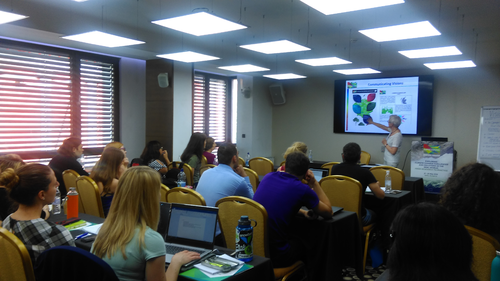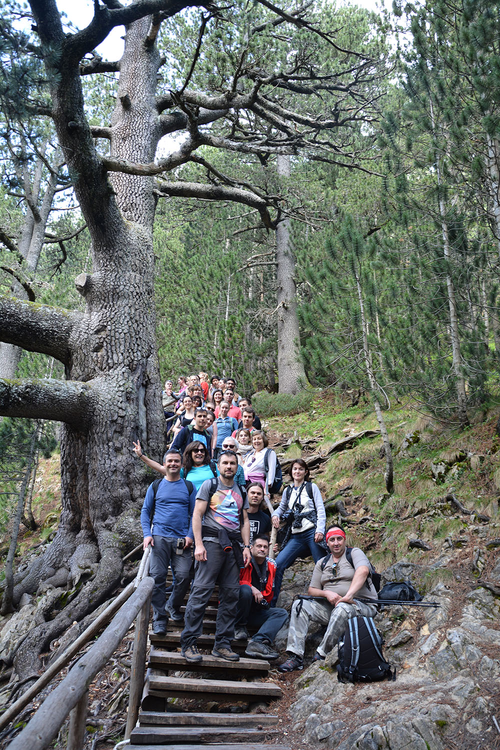Careful planning of your weekly food shop, saving on your electricity bills and saying no to yet another straw in your cocktail could be the first steps towards preventing extreme climate change in the future.
Thirty young scientists and practitioners got together for a five-day summer school in Sofia, Bulgaria to work out what are the different ways to prevent and adapt to the possibility of a 7-degrees warmer future.

Placing climate change in the Bulgarian context through EU FP7 project IMPRESSIONS modelling tool, it became evident that a future with extreme climate change might mean that the country will end up deprived of key sectors such as agriculture and tourism.
Climate change is not just about nature and the environment but also about how society is affected and responds and there is a range of actions we can take to go away from extreme climate change.
"When running the model in our group, Bulgaria turned out as the country with the lowest food production in Europe, in contrast to a rather developed sector at the moment," explains Bramka, TU DELFT, the Netherlands.
Steps could be individual for each national and local context and while working out what could be the pathways to a common positive vision, it became evident that in the case of Bulgaria a key strategy would be to work toward more politically engaged and corrective society.
For example, when looking at a scenario featuring destruction of the the Pirin mountain national park , while the government took private investor interests into account and is promising more employment, in the long term for locals, other solutions such as eco-tourism are actually more likely to achieve such goals.
How do the scenarios relate to the situation in Bulgaria? Is it a "Mission impossible", "Artificial happiness" or something else? pic.twitter.com/UKTBG3WEhC
— IMPRESSIONS (@IMPRESSIONS_EU) May 24, 2018
"Destroying the national park could mean a more climate change prone future, which could ultimately destroy winter tourism in the area, currently a main income source there," says local Iliyana Kuzmova.
"We’ve explored both worst-case and very positive scenarios, but we always worked towards a positive vision that would guide us to identify the necessary steps towards getting to a better future," says Prof Paula Harrison, CEH, UK.
"But what also became evident is that the later we take action the more likely we are to end up with unwanted consequences in the future".
